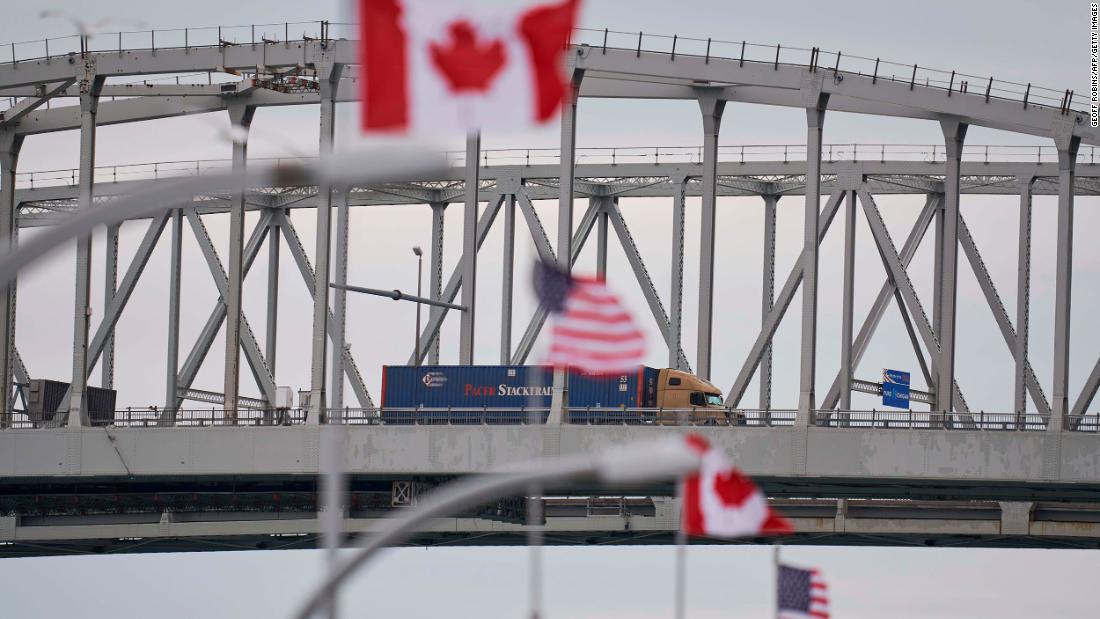(CNN) — People who choose to travel to Alaska through Canada are facing stricter rules starting Friday.
The additional entry conditions aim to crack down on those sneaking into the country to go to national parks, leisure sites and tourism activities amid the coronavirus pandemic.
“As of July 31, … stricter rules and additional entry conditions will be imposed on travelers transiting through Canada to Alaska for a non-discretionary purpose,” the Canada Border Services Agency said. “These measures are put in place to further reduce the risk of introduction of Covid-19 cases and to minimize the amount of time that in-transit travelers are in Canada.”
Measures include cars’ rearview mirrors getting marked with a leave-by date during the period the visitors are in Canada headed to Alaska.
“The front of the tag will make it clear that the travelers are transiting and include the date they must depart Canada. The back of the tag will remind travelers to comply with all conditions imposed upon entry,” the border agency said in a statement.
The border between the United States and Canada is closed to all nonessential travel. However, Americans and foreigners can drive to and from Alaska as long as they follow specific mandates.
With the new rules, they’ll have to use one of five designated border crossings to enter Canada. Three are in British Columbia, and one each in Alberta and Saskatchewan.
Travelers will be limited to travel within Canada using the most direct route from the port of entry to the intended port of exit, the border agency said. “These measures also apply to foreign nationals transiting to the US through Canada from Alaska,” it added.
There have been social media reports that some Americans have been telling border agents they were driving to Alaska only to visit popular Canadian tourist spots such as Banff National Park.
Failure to comply with border restrictions could lead to up to $750,000 in fines or imprisonment of up to six months.
“If a traveler causes a risk of imminent death or serious bodily harm to another person while willfully or recklessly contravening this act or the regulations, they could be liable for up to $1,000,000 in fines, and/or imprisonment of up to 3 years,” the border agency says.
